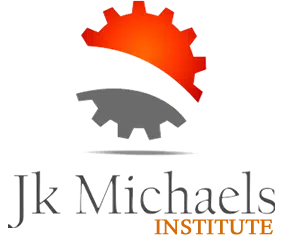CBAP vs. CCBA
CBAP vs. CCBA
Unlock the Secrets of CBAP vs. CCBA: Which Certification is Right for You?
CBAP vs. CCBA will be discussed in this article. Are you interested in advancing your career in business analysis? If so, you’ve probably heard about the CBAP and CCBA certifications. These certifications are both recognized in the field and can help you stand out from the competition. But which one is right for you?
In this article, I’ll break down the difference between CBAP and CCBA and discuss the benefits of each one. I’ll also give you an exam comparison, cost comparison and career opportunities for each certificate. You’ll have all the information you need to make the right decision and advance your professional career.
Introduction to CBAP and CCBA
The Certified Business Analysis Professional (CBAP) and the Certified Control Business Analyst (CCBA) are two of the world’s most widely recognized business analysis certifications. They are offered by the International Institute of Business Analysis (IIBA) and are designed to help business professionals gain advanced knowledge and skills in business analysis.
The CBAP certification is the most advanced certification available. It is designed for experienced business analysts with a minimum of seven years of experience and the ability to demonstrate their knowledge and skills. The CCBA certification is designed for those with less experience and is the entry-level certification for those just starting their business analysis career.
The Difference Between CBAP and CCBA
The main difference between CBAP and CCBA certifications is the level of experience required to obtain each one. The CBAP certification requires a minimum of seven years of business analysis experience, while the CCBA certification only requires three years of experience.
In addition, the CBAP certification is focused on advanced knowledge and skills, while the CCBA certification is focused on foundational knowledge and skills. The CBAP certification requires a more comprehensive understanding of the business analysis process, while the CCBA certification is more focused on the basics.
Benefits of CBAP
There are many benefits to having the CBAP certification. First, it demonstrates your knowledge and skills in business analysis. This can help you stand out from the competition and make you more attractive to potential employers.
Second, obtaining a CBAP certification can help you advance your career. It can open the door to new opportunities and help you advance in business analysis. It can also give you more negotiating power regarding salary and other benefits.
Finally, having a CBAP certification can give you more credibility and respect in the field. It shows that you have a strong understanding of the business analysis process and can help you gain the confidence of your peers and colleagues.
Benefits of CCBA
The CCBA certification is a great way to get started in the business analysis field. It is a great way to demonstrate your knowledge and skills, even if you don’t have much experience.
A CCBA certification can also help you stand out from the competition and make you more attractive to potential employers. It can help you get your foot in the door and allow you to make a name for yourself in the business analysis field.
Finally, having a CCBA certification can help you build your network and make connections in the field. It can help you find mentors and colleagues who can help you grow and develop your career.
Requirements for CBAP
To obtain a CBAP certification, you must have seven years of business analysis experience. You must also have a minimum of 900 hours of experience in four of the six knowledge areas defined by the IIBA.
In addition, you must have a minimum of 35 hours of professional development activities in the last four years. Finally, you must pass the CBAP exam, which consists of 150 multiple-choice questions.
Requirements for CCBA
The CCBA certification requires a minimum of three years of business analysis experience and a minimum of 900 hours of experience in three out of the six knowledge areas defined by the IIBA. You must also have 21 hours of professional development activities in the last three years. Finally, you must pass the CCBA exam, which consists of 130 multiple-choice questions.
Exam Comparison – CBAP vs CCBA
The CBAP and CCBA exams are similar in many ways, but some key differences exist. The CBAP exam is more comprehensive, with 150 multiple-choice questions and a total of three hours to complete the exam. The CCBA exam is shorter, with 130 multiple-choice questions and two and a half hours to complete.
The CBAP exam is also more complicated than the CCBA exam. The CBAP exam is focused on advanced knowledge and skills, while the CCBA exam is focused on foundational knowledge and skills.
Career Opportunities with CBAP and CCBA
A CBAP or CCBA certification can open the door to many career opportunities. With a CBAP certification, you can pursue higher-level roles such as senior business analyst or business process analyst. With a CCBA certification, you can pursue roles such as business analyst or process analyst.
You can also use your CBAP or CCBA certification to advance your career in other fields, such as project management or software development. It can help you gain the knowledge and skills you need to move up in your current field or explore new opportunities.
Cost Comparison – CBAP vs CCBA
The cost of the CBAP and CCBA certifications can vary depending on the provider. Generally, the CBAP certification is more expensive than the CCBA certification. The CBAP exam can cost anywhere from $250 to $1,000, while the CCBA exam can cost anywhere from $150 to $600.
In addition, the cost of renewing your CBAP or CCBA certification can also vary. Generally, the CBAP renewal fee is more expensive than the CCBA renewal fee. The CBAP renewal fee can cost anywhere from $100 to $400, while the CCBA renewal fee can cost anywhere from $50 to $200.
Conclusion
The CBAP and CCBA certifications are great ways to advance your career in business analysis. The CBAP certification is more advanced and requires more experience and knowledge. The CCBA certification is entry-level and great for those just starting out in the field.
By now, you should better understand the difference between the CBAP and CCBA certifications and which one is right for you. If you’re ready to take the next step, get certified as CBAP/CCBA and advance your professional career!
JK Michaels Institute offers other Soft Skill Training Courses.



